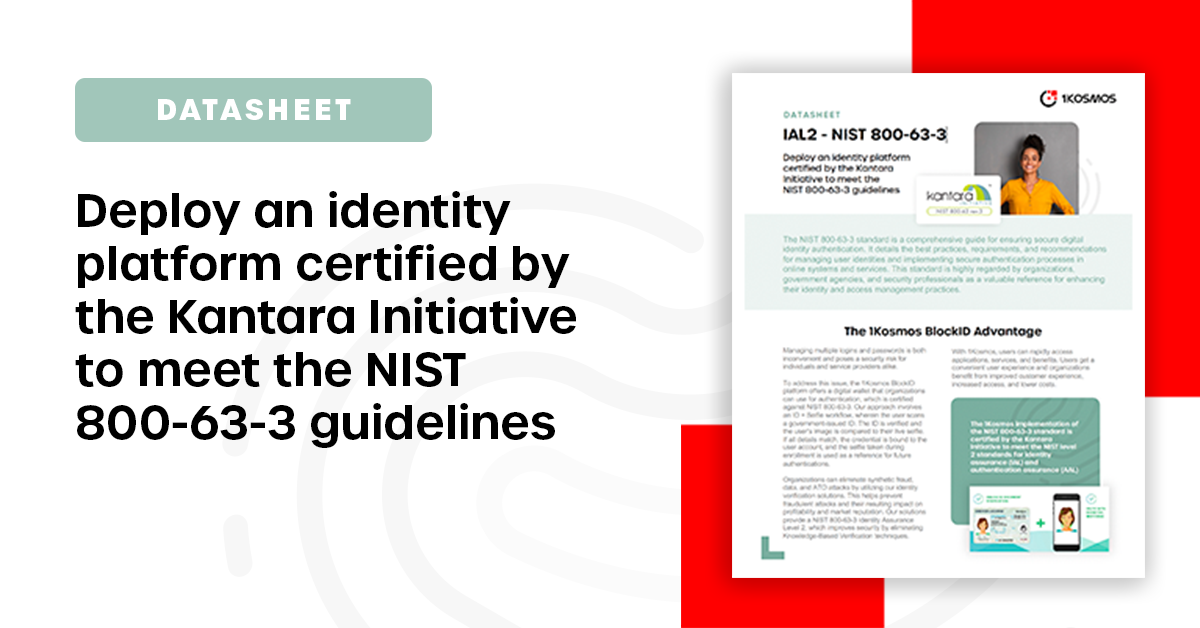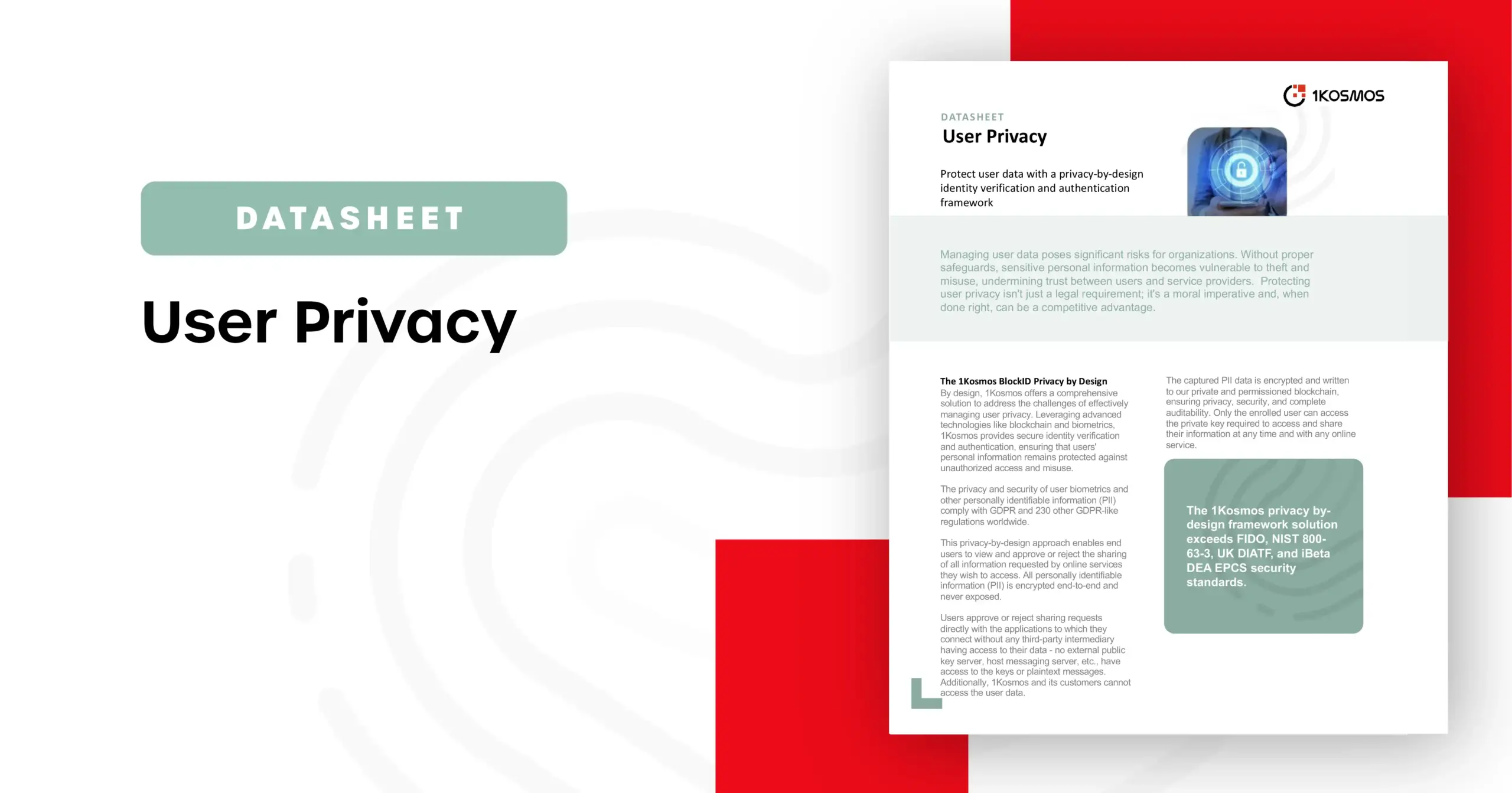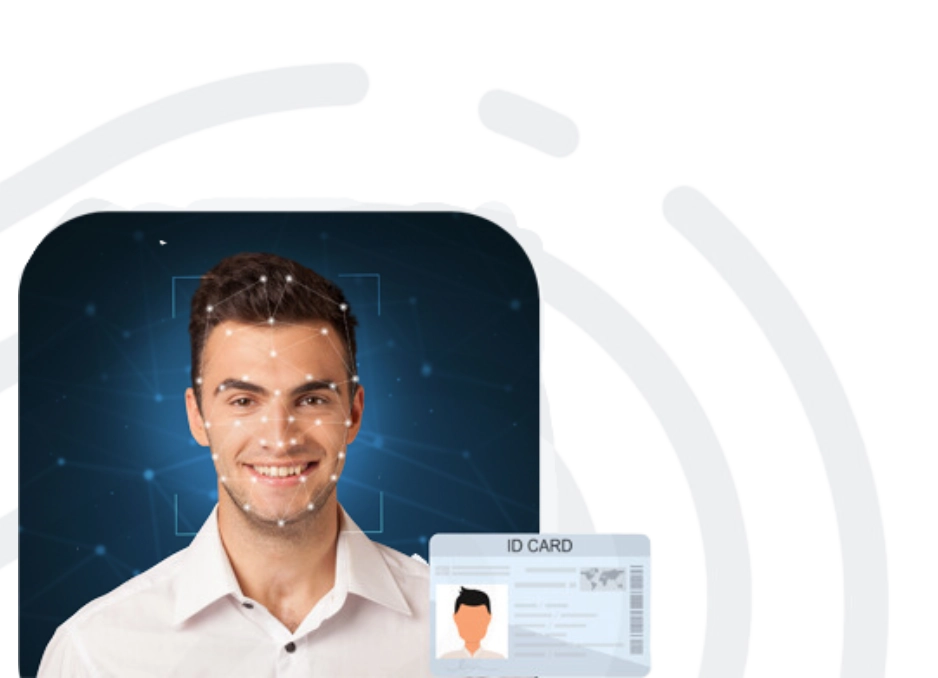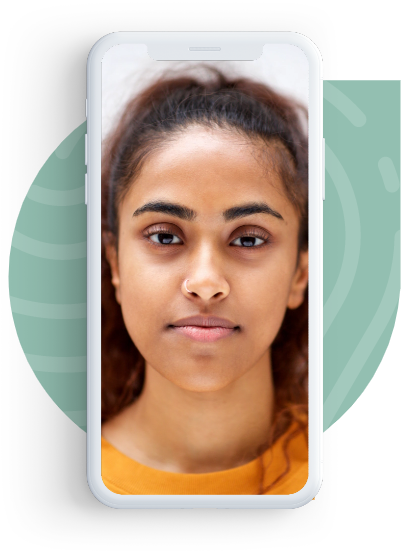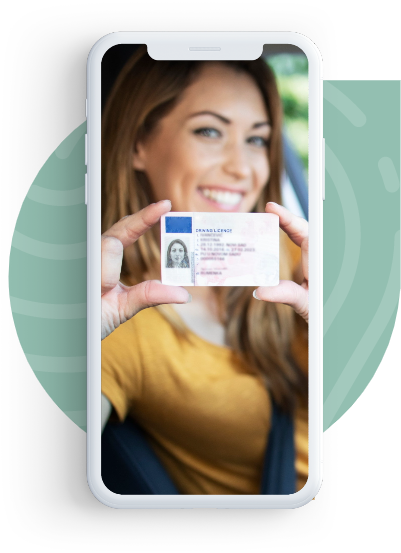The Business Challenge
Government agencies are the target of rampant fraud from remote users. By detecting stolen and synthetic identities at the front end of account origination for citizens and residents, agencies can see significant cost savings by reducing fraudulent activities. But too often, tightening fraud controls delivers an alienating experience to legitimate citizens and residents while negatively impacting underserved, unbanked, thin-file, and no-hit populations.
1Kosmos identity verification deployed as a standalone service or adopted as a CSP replaces current verification methods with a customizable self-service journey built to meet diverse identity verification requirements, up to and including the NIST 800-63-3 Identity Assurance Level 2 (IAL2) standard.
With 1Kosmos, government agencies verify user identities remotely and store the personal information in a private and permissioned decentralized distributed ledger that user’s control. This accelerates service delivery and makes government services more accessible in a privacy preserving way.
The 1Kosmos Advantage
Detect Stolen and Synthetic Identities
1Kosmos digitally transforms identity enrollment for citizens and residents, so government agencies gain the security advantage they need to defend against fraudulent synthetic activities targeting services.
During customer onboarding, 1Kosmos detects stolen and synthetic identity fraud through a user friendly self-service enrollment process utilizing many factors to prove identity. These include government issued IDs like a driver’s license, passport, or National ID card (for over 205 countries). Additionally, an API can be activated to verify the document’s validity against issuing authorities.
1Kosmos and its CSP service can meet up to a NIST IAL2 and AAL2 anywhere, anytime and on any device with absolute zero human bias for both gender and race. Other lower levels of identity assurance, such as a banking account, telco account, email, social security number, and phone number can also be validated to build a verified identity.
A selfie, with a built-in liveness check, is captured and compared to the image captured during the document verification step. The selfie must match the captured image, increasing the level of assurance of the user’s identity and can be used for biometric authentication.
Identity Verification is Only as Sound as the Credential Used
1Kosmos’ identity proofing technology captures the information in the presented credential to ensure the document is valid. For example, 1Kosmos checks for common characteristics of the document to identify if a photocopy was used.
1Kosmos fused AI and machine learning to review over 2,000 unique computer vision data models to verify an ID’s authenticity. OCR technology can extract information from an ID and populate forms instantly. Additionally, 1Kosmos can read and compare the data on an ID’s NFC chip if available. These capabilities reduce enrollment time and reduce mistakes made during user onboarding.
In cases where a visual check of the data is required, 1Kosmos will work with third parties to validate the captured data and the ID document. Or, if preferred, 1Kosmos can activate an API to verify the data from the Country Signer Certificate Authority (CSCA) or from an issuing authority such as AAMVA for US drivers licenses, to validate the document and data.
Empower Citizens to Control Their Personal Information
1Kosmos places users in sole control of their own information by securing information via cryptographically paired public-private key architecture. For added security, 1Kosmos’ CSP utilizes a private and permissioned distributed ledger to decentralize data, eliminating administrative access to a centralized “honeypot” of information that hackers often target in data breach or ransomware attacks.
The data captured during the document verification process is managed through the citizen’s digital identity wallet. The data is encrypted and stored in a distributed ledger, accessible only via a FIDO2 certified private-public key pair secured in the TPM / Secure Enclave of a device and under the sole control of the user via their biometric.
User identity can be secured across multiple devices, and because there is no centralized user store, a decentralized approach ensures there is no honey pot of personally identifiable information (PII Data) to secure against the threat of data breach.
Reusable Credentials Offer Streamlined Access to Services.
Once onboarded, users will possess a portable app-based or web-based digital identity wallet. The 1Kosmos identity wallet provides privacy-preserving, automated, and cryptographically secure way to store PII, while allowing agencies to verify a virtually unlimited array of identity details, including government issued ID, education qualifications, healthcare data, financial account details, and other third-party machine-readable personal information.
The reusable credential allows for quick and easy sharing of verified information with various service providers, reducing the need for repetitive paperwork and manual verification. The convenience of having all necessary documents in a digital format enhances user experience, while also ensuring privacy and security through technologies like zero-knowledge proofs, which verify credentials without exposing underlying personal data.
This modern approach to identity management not only saves time but also increases trust in digital transactions and interactions with public sector entities.
